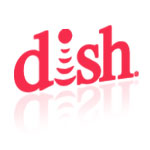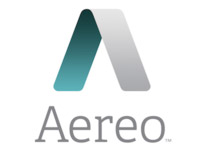
More than 100 companies in the tech industry have come together to battle a proposal by the Federal Communications Commission that they say could irreparably harm the open Internet.
Firms including Amazon, eBay, Facebook, Google, Kickstarter, LinkedIn, Microsoft, Netflix, Twitter, and Yahoo signed an open letter to the FCC advocating the benefits of an open Internet. The FCC’s long-standing support and protection of the open Internet has allowed companies to flourish and provide economic growth in the U.S., the coalition’s letter says.
While the group did not offer specific solutions for the problem, it called on the FCC to ensure the “Internet remains an open platform for speech and commerce so that America continues to lead the world in technology markets.”
Fair Treatment
“Net neutrality,” as the open Internet concept is known, requires that Internet service providers refrain from offering preferential treatment to technology and Internet companies willing to pay extra for delivery of their services to end customers. Instead, all Internet data and traffic should be treated equally.
However, the D.C. Circuit Court of Appeals in January struck down an FCC order preventing ISPs from discriminating against service providers, such as website operators, application developers and cloud service providers.
“With the recent court defeat, I do not believe that targeting the FCC with this letter is an effective channel to promote Net neutrality,” Jim McGregor, principal at Tirias Research, told the E-Commerce Times. “More will need to be done in Congress to alter future legal decisions and provide the FCC with greater leverage to enforce such rules.”
The precise details of the FCC’s latest proposal have not yet been disclosed, but the commission has noted that it includes a provision allowing ISPs to negotiate with Internet companies with the understanding that all data and content will be transmitted at a defined minimum level of service.
The FCC is scheduled to vote on the proposal on May 15; if it passes, the next step will be to offer it for public comment.
Proper Consideration
As it stands, the proposal has been widely criticized by open Internet advocates — even within the FCC. One commissioner, Jessica Rosenworcel, has argued against Chairman Tom Wheeler’s insistence that the commission vote on the topic next week.
The FCC should delay consideration of the proposal by at least a month, she suggested, noting “that rushing headlong into a rulemaking next week fails to respect the public response to [Wheeler’s] proposal.”
Meanwhile, Mozilla this week submitted an alternative proposal for how the FCC should regulate the delivery of Internet services. It wants the FCC to reclassify the service ISPs provide to companies like Facebook and Netflix as “common carrier services,” which would forbid ISPs from seeking deals to provide preferential treatment.
Mozilla also is calling for the commission to recognize there are two distinct models for delivering services via the Internet. In the first, each Internet user is connected to all service providers in a local delivery model. In the second — remote delivery — each service provider is connected to all of an ISP’s relevant end users. Mozilla wants the FCC to define remote delivery services as “telecommunications services” under Title II of the Communications Act.
‘Meaningful Net Neutrality’
This approach would give the FCC the ability to enforce “meaningful Net neutrality,” according to Mozilla.
Having clearly defined authority and rigorous rules would stop ISPs from hampering services provided by Internet companies, Mozilla said.
“We are very confident that they’ll give it serious consideration,” Chris Riley, senior policy engineer at Mozilla, told the E-Commerce Times. “I think we have a reasonable chance of getting the petition accepted and put up for public comment.”
The FCC has another option, should it decline to accept Mozilla’s plan.
“Reclassification in the traditional sense, which is different from our proposal, is a viable option and is still being considered,” Riley said.
“Mozilla’s proposal is really just a search for a loophole,” Tirias’ McGregor maintained. “Unfortunately, it would still be subject to legal interpretation by the courts — and I really don’t think just changing the labels on particular customers will result in a different legal outcome.”
Netflix Deals
The issue of ISPs charging for preferential treatment has come up in other forums in recent months, notably in the case of Netflix. The company has grudginglyagreed to deals with ISPs like Comcast to deliver smoother streaming video to users. However, Netflix also has sparred with Comcast in public over the issue.
“It would definitely seem that the ISPs have the upper hand,” said McGregor, “and if they choose to implement such policies, it could have a significant impact on the entire electronics value chain.”






















































Social Media
See all Social Media